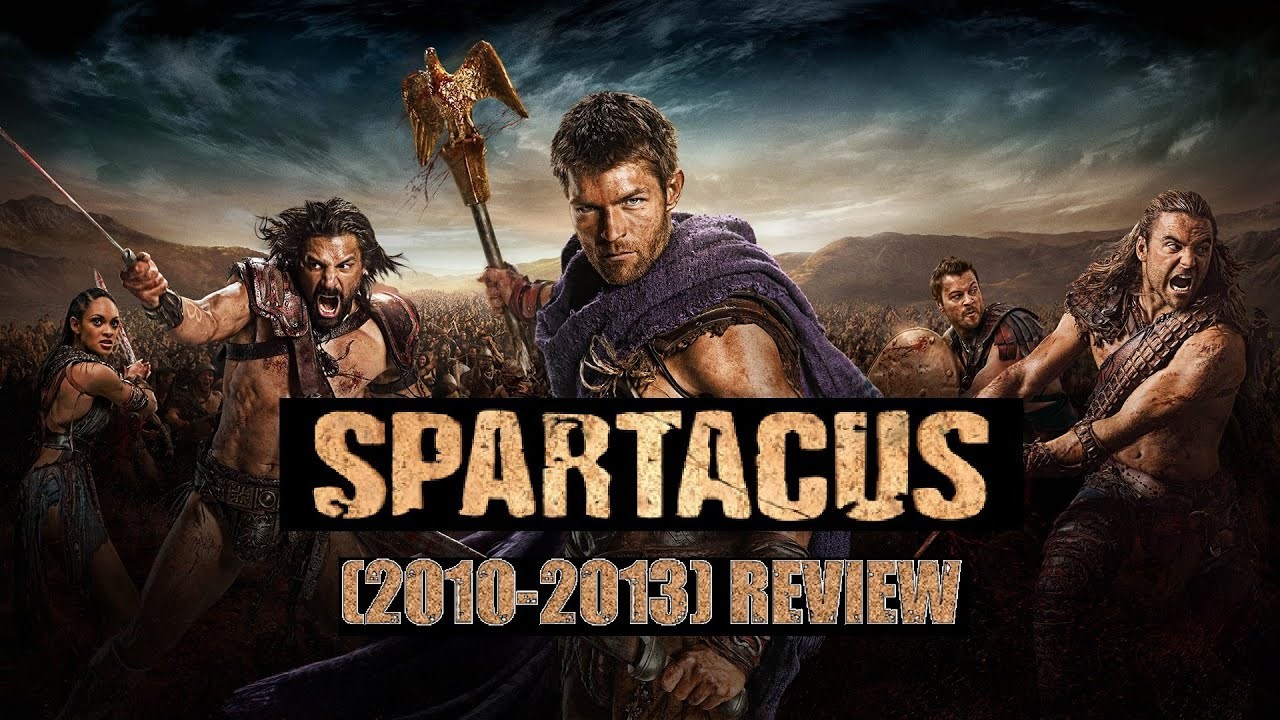Spartacus (TV Series 2010–2013)

Spartacus, an American television series aired on Starz from January 22, 2010, to April 12, 2013, is a significant contribution to the realm of historical drama television. Created by Steven S. DeKnight, the series is a dramatic retelling of the life of Spartacus, the gladiator who led a major slave uprising against the Roman Republic. Known for its intense storytelling, complex characters, and vivid depiction of ancient Rome, Spartacus has garnered a dedicated following and critical acclaim for its bold and innovative approach to the historical drama genre. This essay explores the series’ plot, themes, character development, production elements, and its impact on television storytelling.
Spartacus chronicles the life of its titular character, a Thracian warrior who is enslaved and forced to become a gladiator. The series begins with Spartacus (played by Andy Whitfield in the first season and Liam McIntyre in the subsequent seasons following Whitfield’s passing) being betrayed by his own people and sold into slavery. He is trained to fight in the arena under the brutal oversight of the lanista Batiatus (John Hannah) and his wife Lucretia (Lucy Lawless).
As the story progresses, Spartacus becomes a symbol of resistance and rebellion. His journey from a broken warrior to the leader of a massive slave revolt against Rome is central to the narrative. The series explores his complex relationship with his wife, Sura (Erin Cummings), and his growing leadership as he unites a diverse group of slaves and gladiators in their fight for freedom.
The primary themes of Spartacus include freedom versus oppression, the quest for vengeance, and the corrupting influence of power. The series delves into the brutal realities of slavery and the moral ambiguities faced by its characters. It portrays the clash between the individual’s desire for freedom and the oppressive forces of the Roman Republic, reflecting both historical and timeless struggles for justice and autonomy.
The characters in Spartacus are richly developed, each contributing to the series’ intricate web of relationships and conflicts:
Spartacus: Andy Whitfield’s portrayal of Spartacus in the first season, Spartacus: Blood and Sand, is both powerful and charismatic. Whitfield’s performance captures Spartacus’s evolution from a betrayed warrior to a revolutionary leader. Following Whitfield’s death, Liam McIntyre took on the role, continuing to portray Spartacus with a nuanced understanding of the character’s inner turmoil and strength.
Batiatus: John Hannah’s portrayal of Batiatus, the cunning and ambitious owner of the gladiatorial school, is one of the series’ standout performances. Batiatus is a character driven by power and greed, and Hannah’s performance brings a charismatic yet morally corrupt dimension to the role.
Lucretia: Lucy Lawless’s Lucretia is a complex character who embodies both vulnerability and ruthlessness. Her relationship with Batiatus and her own ambitions provide a significant emotional and dramatic depth to the series.
Crixus and Naevia: Crixus (Manu Bennett) and Naevia (Catherine McCormack), two key characters within the gladiatorial school, add depth to the story. Crixus’s development from a proud gladiator to a leader in the rebellion, and Naevia’s personal journey, are central to the narrative’s emotional impact.
Steven S. DeKnight, the creator and primary showrunner of Spartacus, directs the series with a focus on intense drama and intricate storytelling. DeKnight’s vision incorporates elements of historical accuracy with stylized storytelling, creating a unique blend of historical drama and modern television aesthetics.
The screenplay of Spartacus is notable for its complex characters, intricate plotlines, and sharp dialogue. The writing balances historical context with dramatic flair, enhancing the series’ appeal while providing depth to its characters and conflicts. The narrative structure often weaves multiple storylines together, creating a rich tapestry of interconnected fates and motivations.

The visual style of Spartacus is one of its most distinctive features. The series employs a stylized approach to its depiction of ancient Rome, using vibrant colors and dynamic cinematography to create a visually arresting experience. The use of slow-motion and dramatic camera angles enhances the impact of the action sequences and emotional moments.
The production design, including the sets, costumes, and special effects, contributes significantly to the series’ immersive atmosphere. The recreated Roman world is detailed and historically inspired, while the gladiatorial arena scenes are intense and vividly realized.

The score for Spartacus, composed by Joseph LoDuca, complements the series’ dramatic and epic tone. The music enhances the emotional weight of the scenes and the intensity of the action, contributing to the overall atmosphere of the series.
The sound design is also integral to the series’ impact, with a focus on creating a realistic and immersive auditory experience. The use of sound effects, such as the clash of weapons and the roar of the crowd, adds to the intensity of the gladiatorial combat and the drama of the narrative.

Spartacus received positive reviews from critics and audiences alike, praised for its engaging storytelling, strong performances, and innovative approach to historical drama. The series was noted for its ability to blend historical elements with contemporary storytelling techniques, creating a compelling and entertaining experience.
The show’s impact on television is significant, as it demonstrated the potential for historical dramas to be both bold and nuanced. Spartacus has influenced subsequent series in the genre and remains a notable example of how to effectively combine historical context with dramatic flair.

In conclusion, Spartacus (2010-2013) is a groundbreaking television series that offers a compelling and dramatic retelling of the life of the legendary gladiator. With its richly developed characters, intense storytelling, and distinctive visual style, the series stands out as a significant entry in the historical drama genre. Through its exploration of themes such as freedom, power, and rebellion, Spartacus provides a gripping and thought-provoking experience that continues to resonate with viewers and critics alike.











